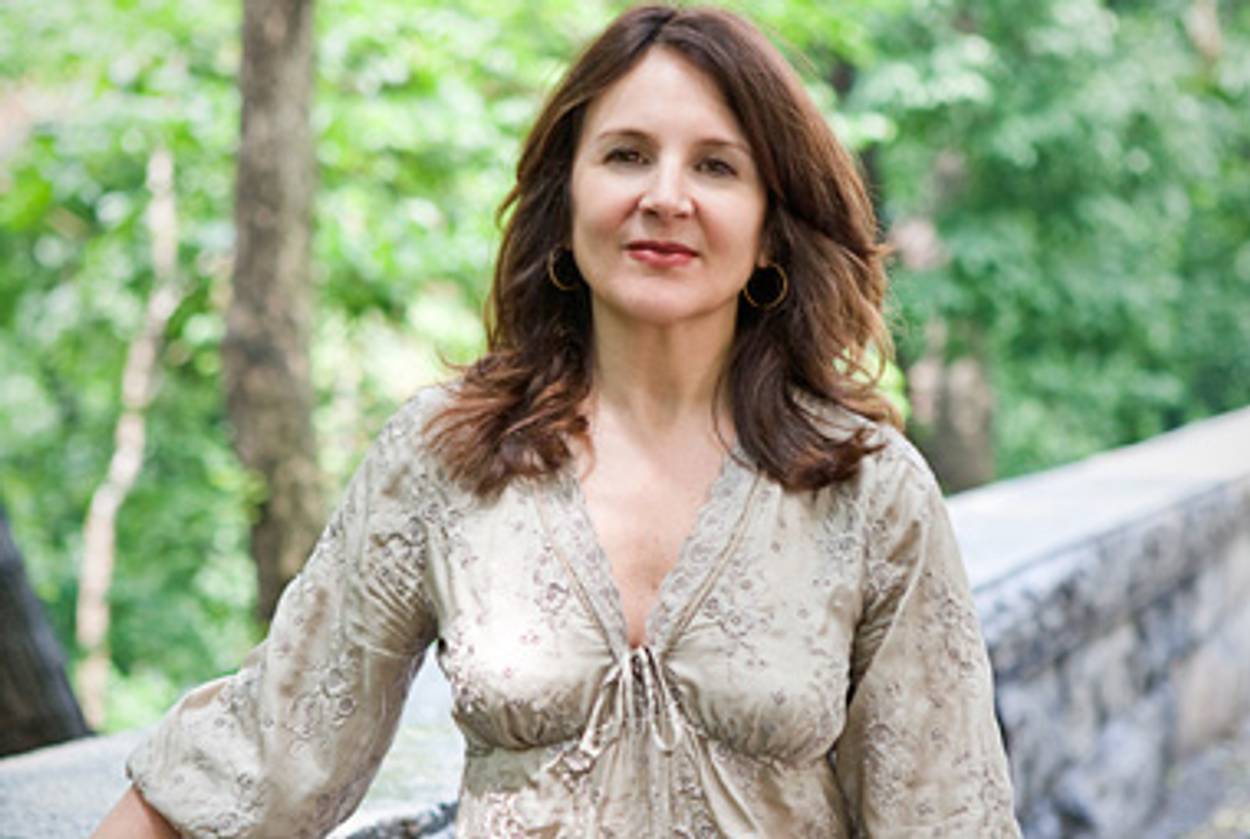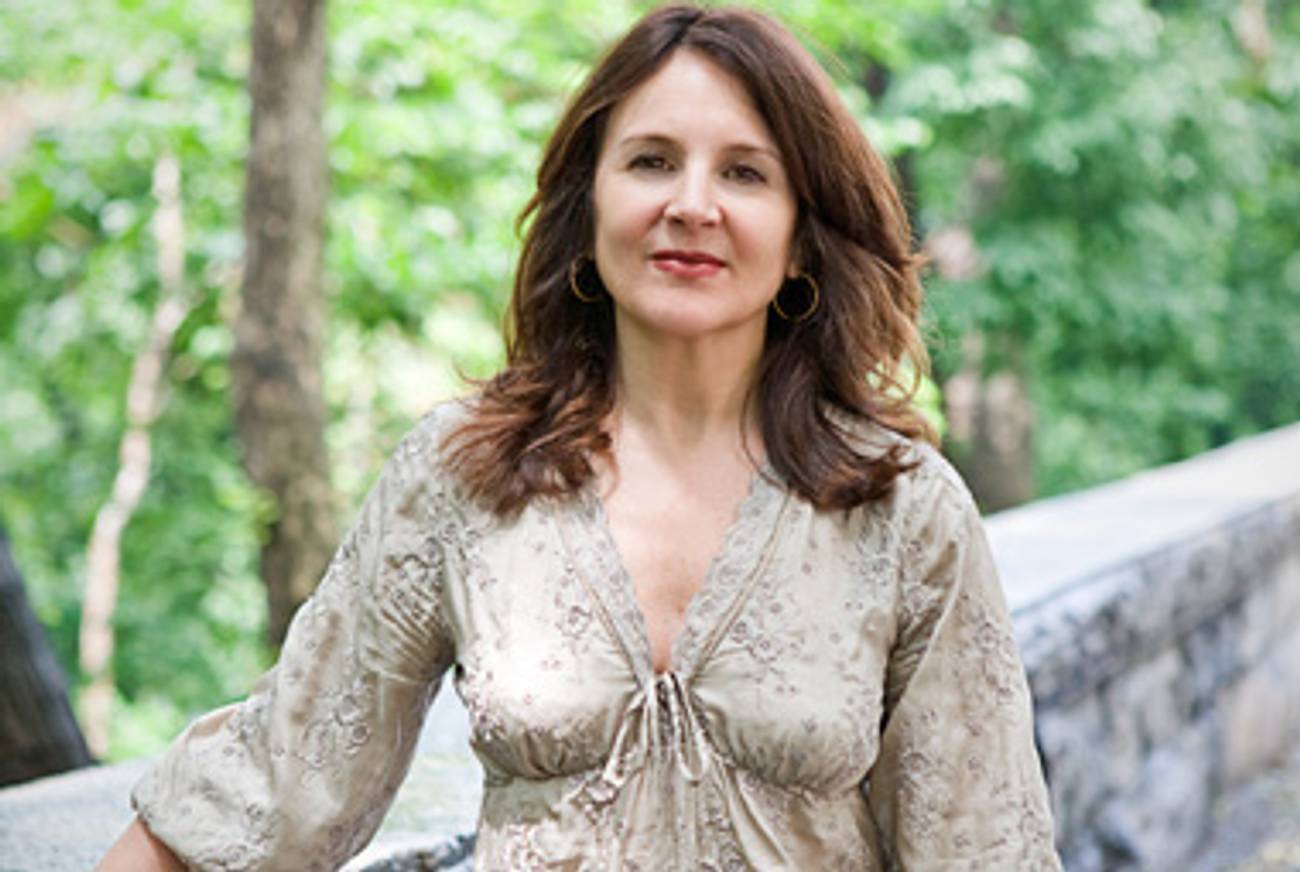Cut Short
In a memoir about her sister’s 1990 suicide, Jill Bialosky reckons with Judaism’s complicated—and still evolving—position on the taking of one’s own life




As an editor at W.W. Norton & Company, Jill Bialosky has earned a reputation as a kind, gracious, and thoughtful reader. She is also a well-regarded poet and novelist, and now, with the publication of her latest book, she can be considered a memoirist as well. History of a Suicide: My Sister’s Unfinished Life(Atria Books), a New York Times best-seller, revisits the night of April 15, 1990, when the author’s 21-year-old sister Kim came home late one night, argued with her boyfriend on the phone, and decided to end her life. Supplementing family history with material from Kim’s diaries, Bialosky traces the events that led her sister to suicide—without allowing Kim’s identity to be defined solely by her death. This Saturday, Bialosky—together with authors Dani Shapiro and Darin Strauss—will be part of panel discussing memoir writing at New York’s Roosevelt Hotel. As she prepared for the engagement, I caught up with Bialosky to discuss her family, Jewish attitudes toward suicide, and the persistence of grief.
You were forced to deal with loss at an early age: Your father, who came from a family of Russian Jewish immigrants, died of a heart attack when you were only 2 years old. Your mother, also Jewish, remarried a Catholic man (Kim’s father), but they divorced a few years later. What role did religion play in your household?
I feel identified as Jewish, even though my family was not particularly religious. It is a way of being that is hard to articulate, but has to do with certain fundamental moral constructs that are passed down through the generations. I had a biblical upbringing, so to speak. I took the interpretations of the Torah and the Ten Commandments very seriously as a child. They instilled a certain honor code of what is wrong and right and provided a context. When my mother married an Irish Catholic man, I was more aware of the differences between us, and I think some of it had to do with how we were raised.
Did Jewish ritual help you to process the loss of your sister?
I like the ritual of sitting shivah. It solves a few logistical problems in the sense that mourners are supported and cared for by a community of loved ones bringing over meals, organizing prayers, and by the simple fact of their company. The truth is that when you are grieving it feels good to see people you care about and to express affection for the loved one who has died. It reminds us that we are not alone, that all of us must eventually face death. It gives us permission to grieve in a culture that is uncomfortable with grief. I like the idea of seven days given over only to honor and mourn. There are other rituals that were a comfort to me. I love the reciting of the 23rd Psalm at graveside. It is one of the most beautiful poems in our language, and I found myself repeating lines from it over and over in the initial weeks of my grieving.
You belong to a synagogue, and in the book you mention feeling uncertainty about whether it was faith that drew you there or a desire to feel a connection with Kim.
My mother once told me that she cannot go into a synagogue without feeling the need to cry, and I feel the same way. I wonder if the impulse is connected to an ancient, tribunal, and communal experience. I feel and hear sorrow and joy in the singing, chanting, and reading of Hebrew. It is an ancient calling, a pull, and I am drawn to it and am comforted by it in inexplicable ways. It makes me feel as if I am in the presence of something larger than myself.
In the book there’s a difficult scene, the day before Kim’s funeral, in which your family seeks the rabbi’s counsel. Could you talk about that?
Judaism has a complicated relationship with suicide. It is considered a form of “self-murder,” and traditionally a Jew who commits suicide is denied privileges: no eulogies should be given, and burial in the main section of the Jewish cemetery is normally not allowed. However, as far as I understand it, the thinking is changing, and because suicide is often an act committed by victims of depression or mental illness, the act is not seen as really voluntary. Judaism also recognizes that mourning rituals exist as much for the living survivors as for the dead, and that these elements ought to be carried out even in the case of suicide. There is also the idea that a person undertaking self-murder may have changed his or her mind and repented at the last moment, so the benefit of the doubt is given and regular burial and mourning rituals can take place.
When we met with our rabbi after Kim’s suicide, he was speechless. He did not know how to comfort us, and I wondered if it had to do with Judaism’s relationship to suicide. But what I love about Judaism is that it is a religion that questions and ponders and interprets. Even though I was disappointed that the rabbi could offer us no comfort, I also felt that he truly felt our loss, and that he too was stricken by it, and maybe there was no comfort to offer. Later I would learn that he lost a stepson to suicide.
You have written about your sister’s suicide in your fiction and poetry, but only metaphorically and obliquely. How did you realize you were ready to face the issue directly?
I quote in the book from a letter Robert Lowell wrote to Elizabeth Bishop in explaining his need to write a particular work: “I couldn’t bear to have my book (my life) wait hidden inside me like a dead child.” I suppose I felt the same about my need to give voice to my sister’s experience in a direct way and to shed light on the mystery and danger of suicide. Memoir writing is to a certain extent about the persistence of memory. The persistence of my sister’s memory was this book’s muse. I told myself that if I could create her inner world and give some order to the chaos that suicide inflicts, perhaps I might begin to fathom a piece of what Melville refers to as the “ungraspable phantom of life,” which for me is a perfect metaphor for suicide.
How has your relationship to grief changed over time?
I have a passage in my book I have called “The Eternal Life of Grief.” I write that the mysterious part of grief is that you think you can will it away. You can refuse to think about it. In one part of your mind you can hold it, but sometimes you must let it go. Sometimes grief disappears for months at a time and you tell yourself: “I’m past this now.” And then grief comes to visit again like a long-lost friend. It is mysterious, but never take it for granted. Get to know it as well as you know your best friend. To answer your question more directly, I have accepted grief as a part of my life.
Carmela Ciuraru has edited several poetry anthologies and is the author of Nom de Plume: A (Secret) History of Pseudonyms, to be published by HarperCollins in June.
Carmela Ciuraru has edited several poetry anthologies and is the author of Nom de Plume: A (Secret) History of Pseudonyms, to be published by HarperCollins.